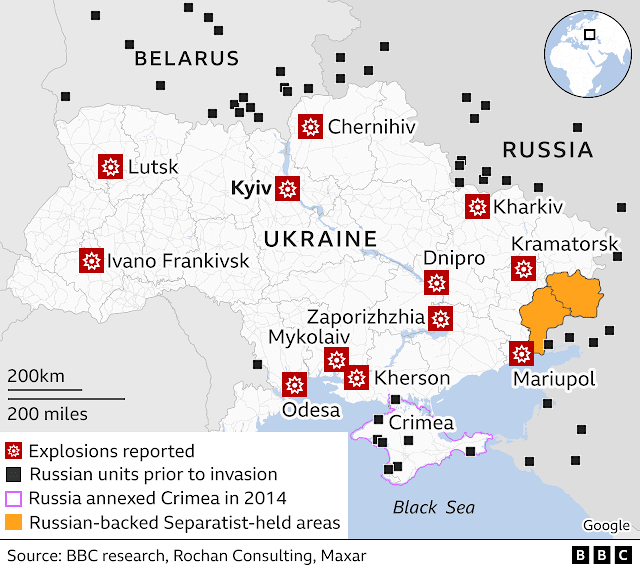Context: Poland and Belarus come to blows over migrants, but what's the history?
In eastern Poland, on the border of the European Union, a crisis is growing between Warsaw and her eastern neighbour Belarus. Poland accuses the Belarusian President, Alexander Lukashenko, of orchestrating a migrant crisis in response to the sanctions imposed on 'Europe's last dictator.' Migrants, largely of Iraqi Kurd ethnicity, having been attempting to flood over the Polish border in recent weeks, sparking the Polish government in to action, deploying thousands of soldiers to stop the wave. Belarus is no bystander in the crisis, having at least to some extent orchestrated the migrants arrival. When the EU pleaded with Belarus and other parties to stop the direct flights from Iraq, they have simply came through hubs such as Istanbul instead. Migrants are now locked in between two increasingly armed enforcers. Poland will not allow them in and Belarus will not allow them back. The migrants have become a pawn in a larger game of chess between Lukashenko and Poland. However, this crisis extends far further, with geopolitical implications in the Kremlin, Berlin and Brussels. There are many subtexts worthy of analysis, but for now we will focus on the two states involved. What are and what were relations like between Warsaw and Minsk?
Close But Not Too Close
Sharing a border just over 400km long, it would be logical to assume that Belarus and Poland are close partners. However, in international relations, proximity doesn't always necessitate friendship. Historically, the pair have been long united. Belarussians, Poles, Lithuanians and Ukrainians were all united in 1386, following the marriage of Poland's Queen Jadwiga and Lithuania's Grand Duke Jagiello. This sparked many years of union, which was formalised under the Polish-Lithuanian Commonwealth in 1569. During this period there was a gradual Polonization of what we now regard as modern Belarus. What is important to note, is that Belarus as a culture and as a people, did not yet have the national identity or cultural awakening the Poles had already developed.
Despite its former eminence, the Polish-Lithuanian Commonwealth finally dissipated in 1795 following the Third Partition of Poland between the Russian, Austrian and Prussian Empires. Belarus and wide swathes of Poland came under Russian occupation. Now it was the turn of Polish culture to be repressed. The Tsar's of Russia initiated a drive for Russification to greater unite the disparate peoples of the Russian Empire. It was the time during which the archetypal homogenous nation state began to emerge and Moscow did not want to be left out. However, it was the Belarussian culture that suffered the most egregious attacks, with the banning of the language and forced conversions from Catholicism to the Russian Orthodox faith. By 1914, Belarus as a national concept was failing.
The War to Change all Wars
This all changed with the defeat of Tsarist Russia during World War One. With the peace negotiations of Brest-Litovsk ongoing, Belarus declared independence under German occupation on 25 March 1918, forming the Belarussian Peoples Republic. Poland, having also gained its independence following the Central Powers defeat, immediately launched into a war with Russia under the guise of the newly formed USSR. Belarus was once again divided between Russia and Poland, with the majority of Belarussians (though not all) residing within Russia.
The defining moment of Polish-Belarussian relations was still yet to come. In 1939, Nazi Germany invaded western Poland whilst Eastern Poland was invaded by the Soviets. Belarus and Poland were both devastated more so than nearly any other peoples of Europe, in regard to casualties lost respective to their pre-war populations. It took until 1971 for Belarus to reach its pre-war population again.
Following the Soviet victory in World War Two, large parts of pre-war Poland were permanently transferred to the Belarussian Soviet Republic. Large parts of the population were also forcibly transferred, though significant minorities still remain.
The Modern World
When the Soviet Union finally collapsed in the early 90s, Belarus achieved its independence once more. Poland was one of the first states to recognise Belarus and relations steadily warmed. Yet in recent times, things have soured. Following Lukashenko's attempt to be elected for a sixth time, the EU, including Poland, issued sanctions against Belarus for vote rigging and political repression. Now, Poland and Belarus find themselves figuratively and literally on the opposite sides of a growing rift. Nationalism and rhetoric is rife, with the threat of escalation real. Yet perhaps, if the neighbours can look to their shared history, filled with suffering and migration, they can come to emphasise not just with one another, but with the helpless migrants trapped in eastern Europe.



Comments
Post a Comment